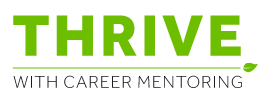What can you do with a degree in languages? We asked Emily Skew, who graduated from the University of Reading in 2015 with a BA in French and Italian, and who now works in marketing. She has excellent advice for anyone wondering where a languages degree might take you:

Emily Skew, a 2015 graduate of the University of Reading, now works in marketing for FEED
French was always my favourite lesson at school. Once I started looking into university courses, I knew a languages course would be for me. I looked at many universities, considering their various combined degrees knowing that I wanted to study French as well as another subject. It wasn’t until I went to an open day at the University of Reading that I made up my mind to study Italian as my second subject, thanks to the friendliness and enthusiasm of the Italian staff. From then, Reading was my only choice.
The Department of Modern Languages and European Studies at the University of Reading was amazing. As students we had so much support and help all the way through the course – something which I didn’t sense I would have had in the other universities I visited – and that didn’t stop when it came to looking at our future after graduation. The University and the department put on many careers events and workshops, which helped enormously to tackle the daunting prospect of leaving university.

A University of Reading Careers Fair
During my last term at Reading I wasn’t sure that a typical languages job, such as translation or teaching, would be for me, so a careers advisor suggested I start looking at industries where I could use skills gained from learning languages. I landed myself an internship in a marketing agency after my exams and I loved it.
Having had so many hands-on hours during my course and a year abroad, I was used to conversing and communicating with lots of different people, meaning a role in communications was probably a good choice. So, while I wasn’t using my languages as such, I was using the many skills my degree had given me. This applied for my next role in PR where my languages helped me get the job even though I wouldn’t necessarily be using them.
I have since moved back to the Marketing sector with an agency called FEED and I am now working on eBay’s global email marketing where I project manage the campaigns by assigning work to copywriters and designers. We look after the French and Italian eBay emails so I finally have the chance to use my languages by checking and editing the emails before they are sent back to the client.

Where will your University of Reading degree take you?
My advice to anyone wondering what to do with a degree in languages? It doesn’t matter if you don’t immediately find a job working with languages. A languages degree gives you a huge variety of transferrable skills which will really impress employers and there is always a large chance you will end up working with languages again. There are so many international companies out there looking for people with invaluable language skills, so you don’t have to go into teaching or translation to make use of your languages.
To learn more about your employability with a degree in French, German, Italian, or Spanish from the University of Reading, check out our careers page. Be sure to follow our blog, like us on Facebook, and subscribe to our Twitter feed, too, so that you can keep up on all the news and events of the Department of Modern Languages and European Studies at the University of Reading.
If you’re a Reading graduate, we’d love to hear from you about your career choices after university. Tell us your story. The University of Reading publishes alumni profiles online. If you’d like to share your experiences, all you have to do is fill out an online questionnaire.
When you do, please consider submitting your story for the “Meet a Reading Graduate” section of our departmental blog.

Are you a University of Reading graduate? Consider becoming a Thrive Mentor.
If you’d like to tell us where your Reading degree has taken you, and perhaps to share a few memories of the department, please get in touch with our Alumni Officer, Dr Charles Leavitt. And please consider joining the University’s Thrive Mentoring Scheme to help our students make their transition into the world after graduation.
Whatever you do, remember to subscribe to our blog:
[subscribe2]



